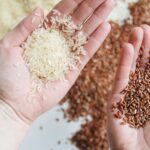In recent years, extensive research has uncovered a multitude of health benefits associated with flavanols, a group of natural compounds found in various plant-based foods. Among the many advantages, two standout areas of interest are the positive impact on memory function and heart health. This article explores the exciting findings that demonstrate how flavanols can enhance cognitive abilities and promote cardiovascular well-being.
Memory Boost:
Numerous studies have shown that regular consumption of flavanol-rich foods, such as cocoa, dark chocolate, berries, and green tea, can significantly improve memory and cognitive function. Flavanols have been found to enhance blood flow to the brain, stimulate neuroplasticity, and protect neurons from damage. These mechanisms contribute to improved learning, attention, and memory retention. Researchers have also observed that individuals who consume higher amounts of flavanols exhibit better memory performance and a reduced risk of cognitive decline as they age.
Heart Health Protection:
Flavanols have emerged as potent protectors of cardiovascular health. They exert their benefits by enhancing the function of blood vessels, reducing inflammation, and combating oxidative stress. Flavanol-rich foods have been associated with lower blood pressure levels and improved endothelial function, which supports healthy blood flow. Additionally, flavanols exhibit antiplatelet and antithrombotic properties, preventing the formation of blood clots that can lead to heart attacks and strokes. Research suggests that a diet rich in flavanols can reduce the risk of developing cardiovascular diseases and contribute to overall heart health.
Mechanisms at Work:
The beneficial effects of flavanols on memory and heart health can be attributed to their interaction with the body’s biochemical processes. Flavanols promote the production of nitric oxide, a compound that relaxes blood vessels, improves blood flow, and reduces inflammation. Moreover, they possess antioxidant properties, which help neutralize harmful free radicals and protect cells from damage. These combined actions create an environment conducive to optimal brain function and a healthy cardiovascular system.
Incorporating Flavanols Into Your Diet:
To harness the potential benefits of flavanols, it is important to include a variety of flavanol-rich foods in your daily diet. Dark chocolate with a high cocoa content (70% or more), berries like blueberries and strawberries, green tea, apples, grapes, and citrus fruits are excellent sources of flavanols. Aim to consume these foods regularly to enjoy their memory-enhancing and heart-protective effects.
Conclusion:
Flavanols have emerged as promising natural compounds that offer a range of benefits, including improved memory function and heart health. By incorporating flavanol-rich foods into your diet, you can potentially enhance cognitive abilities, protect against cognitive decline, and reduce the risk of cardiovascular diseases. However, it is essential to note that moderation is key, as some flavanol-rich foods may also contain added sugars and fats that can offset their benefits. Embrace a balanced approach and savor the goodness of flavanols to boost both your brain and heart health.
Remember, always consult with a healthcare professional or nutritionist for personalized advice regarding your specific health needs.
References:
- Scholey, A., Owen, L., & Wesnes, K. (2013). The effects of chocolate on cognitive function and mood: a systematic review. Nutrients, 5(10), 3582-3607.
- Davison, K., Coates, A. M., & Buckley, J. D. (2017). The potential of flavonoids for the treatment of neurodegenerative diseases. International Journal of Molecular Sciences, 18(2), 275.
- Grassi, D., Desideri, G., Mai, F., Martella, L., De Feo, M., Soddu, D., & Ferri, C. (2012). Cocoa, glucose tolerance, and insulin signaling: cardiometabolic protection. Journal of Cardiovascular Pharmacology, 60(5), 477-486.
- Ried, K., Sullivan, T., Fakler, P., Frank, O. R., & Stocks, N. P. (2017). Effect of cocoa on blood pressure. Cochrane Database of Systematic Reviews, 4, CD008893.





